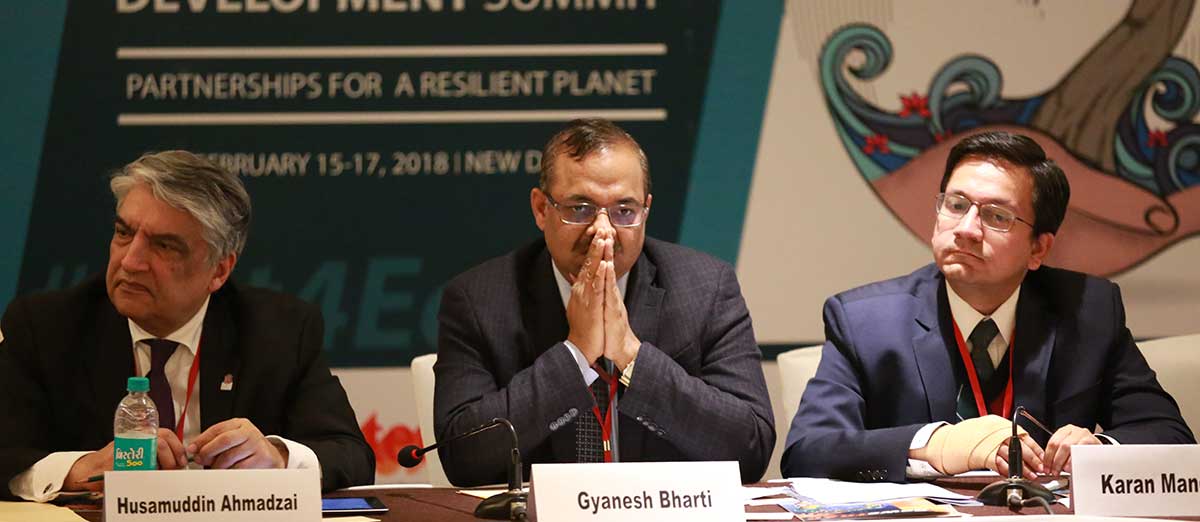
Innovation in refrigerants key to accelerate affordable cooling
 Towards HFC Phaseout: Experts at WSDS Call for More Innovation & Collaboration Between Stakeholders
Towards HFC Phaseout: Experts at WSDS Call for More Innovation & Collaboration Between Stakeholders
Releasing the second issue of NewsTRAC: A quarterly newsletter for service technicians in the refrigeration and air-conditioning (RAC) sector, Dr Ajay Mathur, Director General, TERI, highlighted the benefits of enhancing energy efficiency while reducing global warming. He added how the Kigali Amendment to the Montreal Protocol enabled the option of addressing HFC phaseout while enhancing energy efficiency.
Dr Mathur was speaking at the ongoing World Sustainable Development Summit 2018 in New Delhi. Academics, policymakers, and industry participants convened at a session to deliberate upon affordable and efficient cooling to maximise climate benefits with refrigerant change.
The session highlighted the challenges in the phaseout of HFCs in India and their potential solutions. Dr Hussamuddin Admadzai, Senior Advisor, Swedish Environmental Protection Agency, shared key highlights in Sweden’s journey in phasing out ozone-depleting substances (ODS) 30 years ago when alternatives to ODS were unavailable. Adding that HFCs have many alternatives, he emphasized on the need for collaborative efforts towards developing innovative solutions to enable HFC phase-out.
Ms Frances Beinecke, Trustee, NRDC Action Fund, said that India holds the future for climate change mitigation. India is critical to the success of Kigali Agreement. The sooner India achieves its target, the greater would be the impact on solving the issue of climate change, she added. Partnerships across sectors have the potential to overcome technological barriers.
Developing mechanisms to leverage market potential and enable wide adoption of energy efficient solutions was also discussed at the session. Mr Saurabh Kumar, Managing Director, Energy Efficiency Services Ltd, shared the example of their business model which not only reduced the market price of LED bulbs in India but also stimulated domestic manufacturing and adoption. Mr Kumar shared that the innovative business model did not cause any subsidy burden to the government, dismissing the popular myth that higher standards of energy efficiency lead to an increase in costs.
Mr Randal Newton, Vice President, Ingersoll Rand, spoke about the need for collaboration between chemical manufacturers and refrigerant and air-conditioning industry to develop innovative and safe refrigerants with lower GWP.
Other enablers of climate benefits discussed at the session included district cooling, policy support, philanthropic support, and capacity building of servicing workforce in the RAC sector.